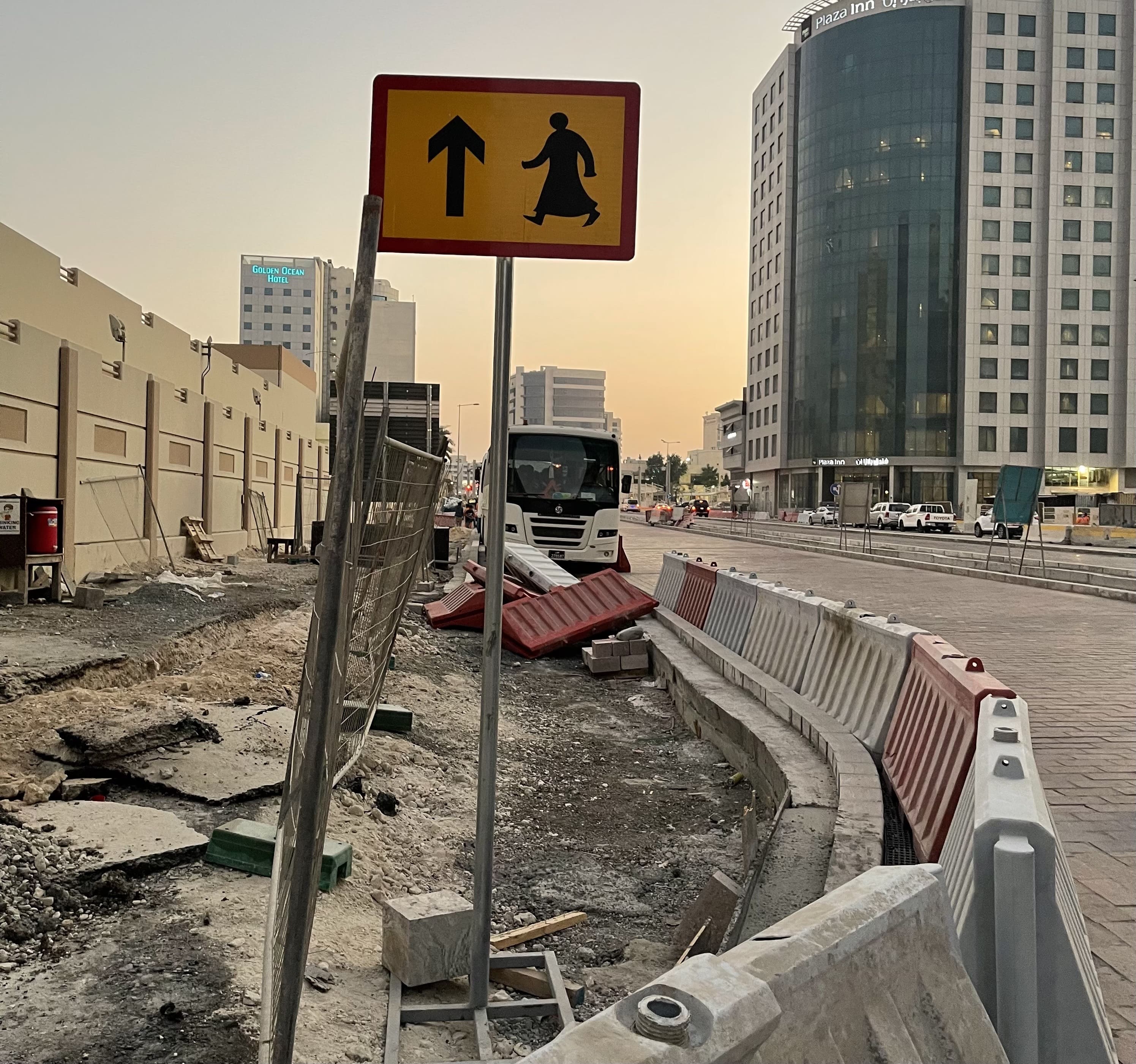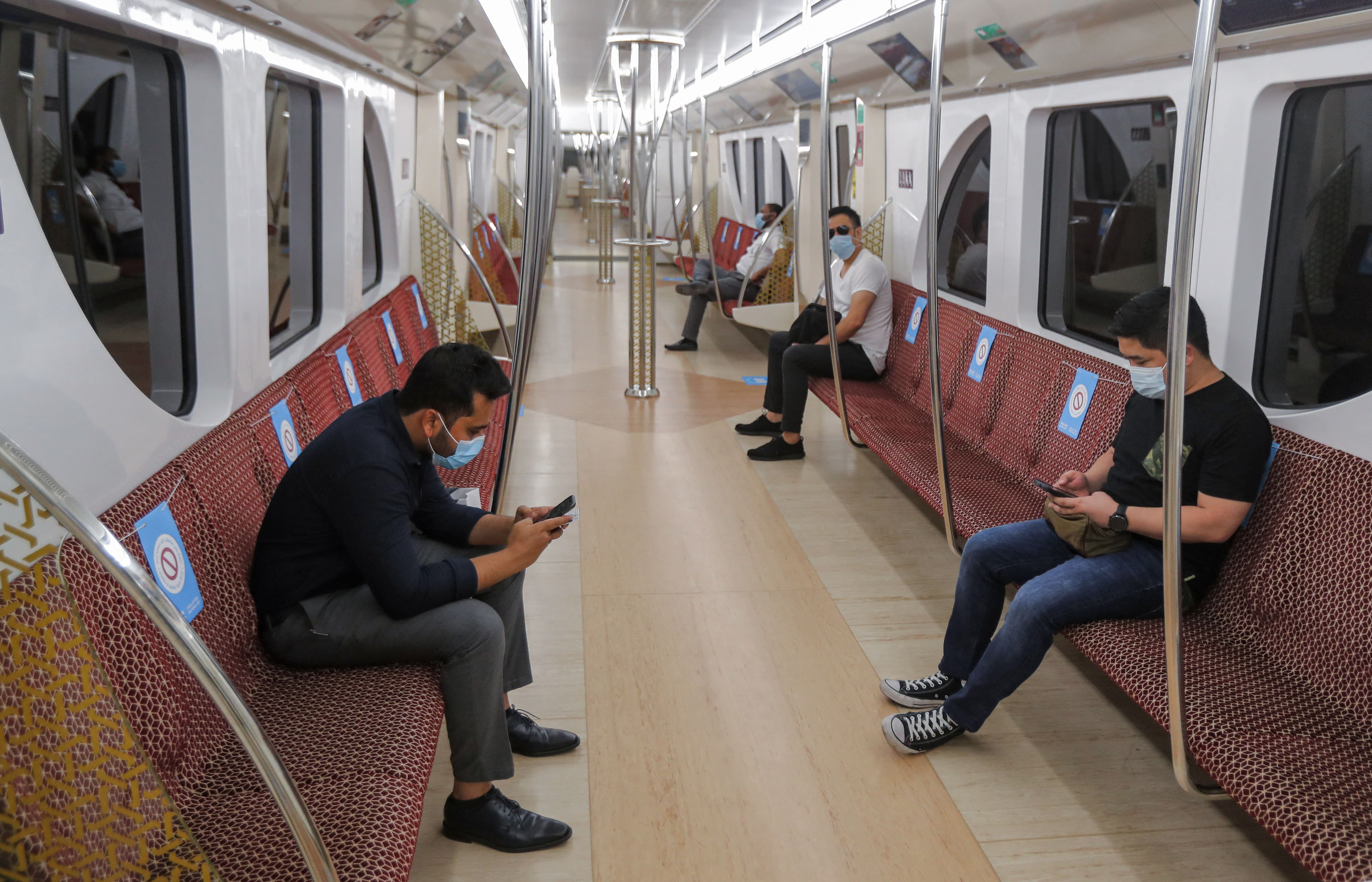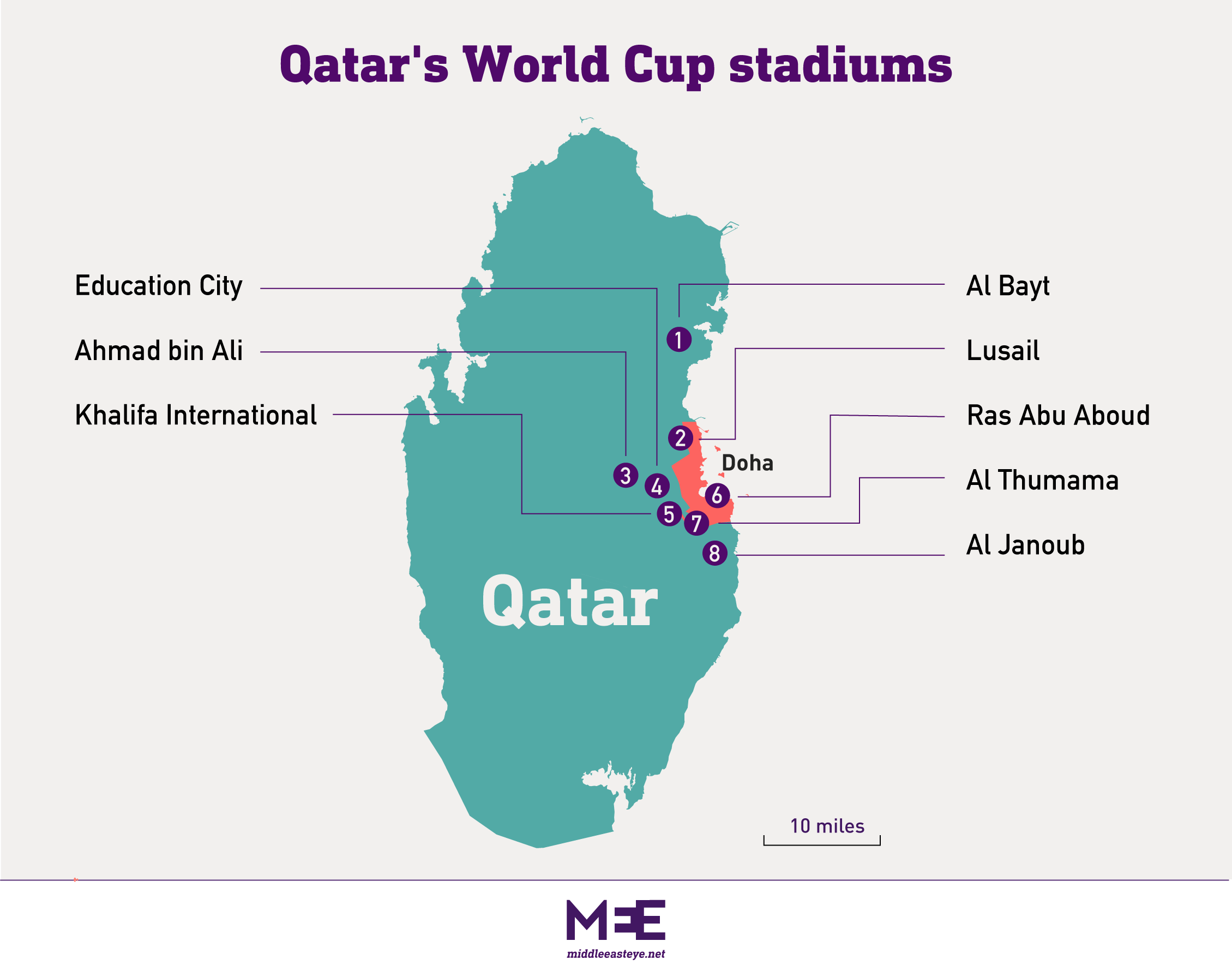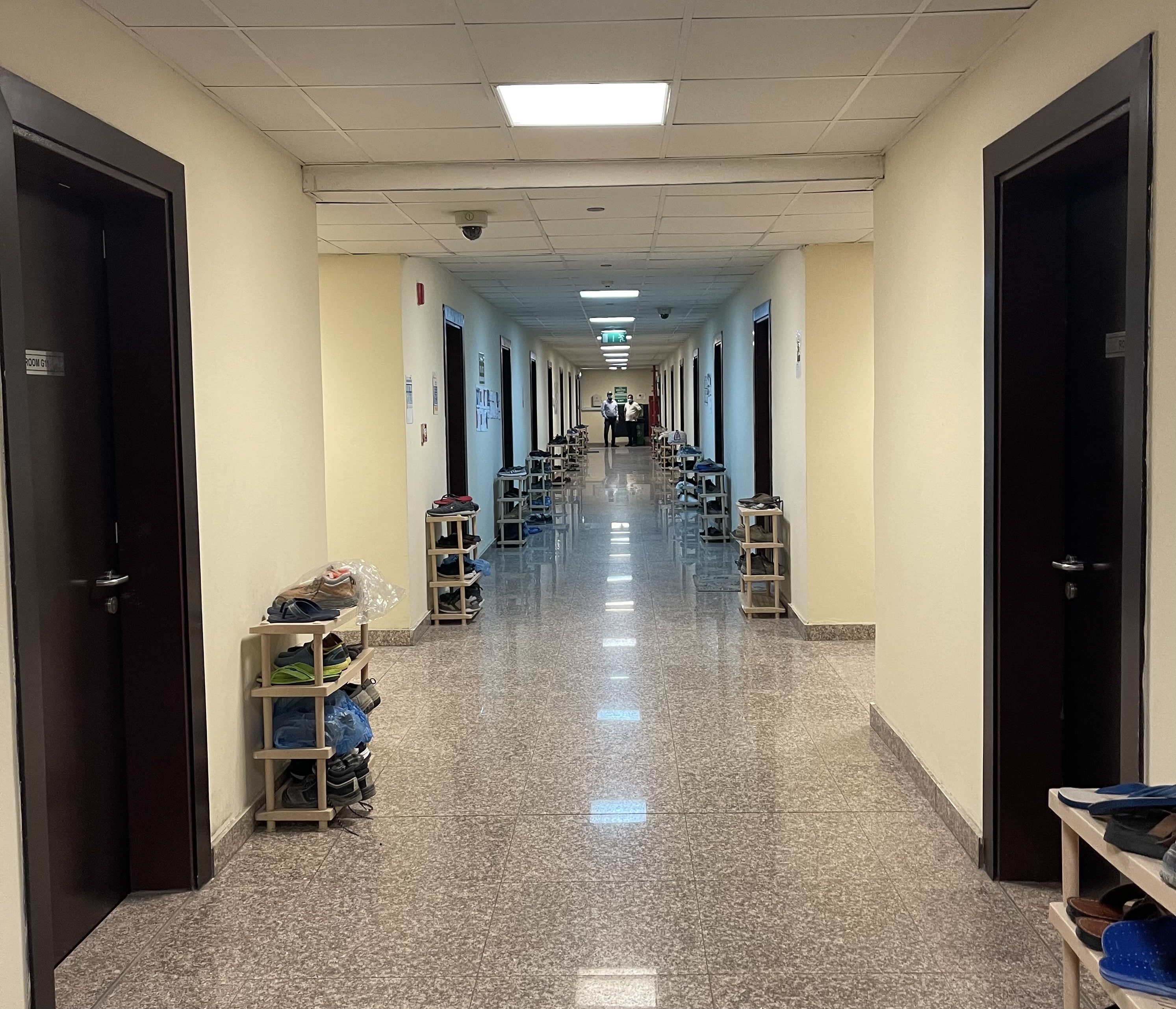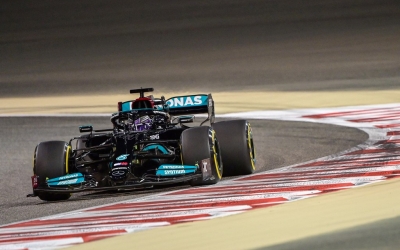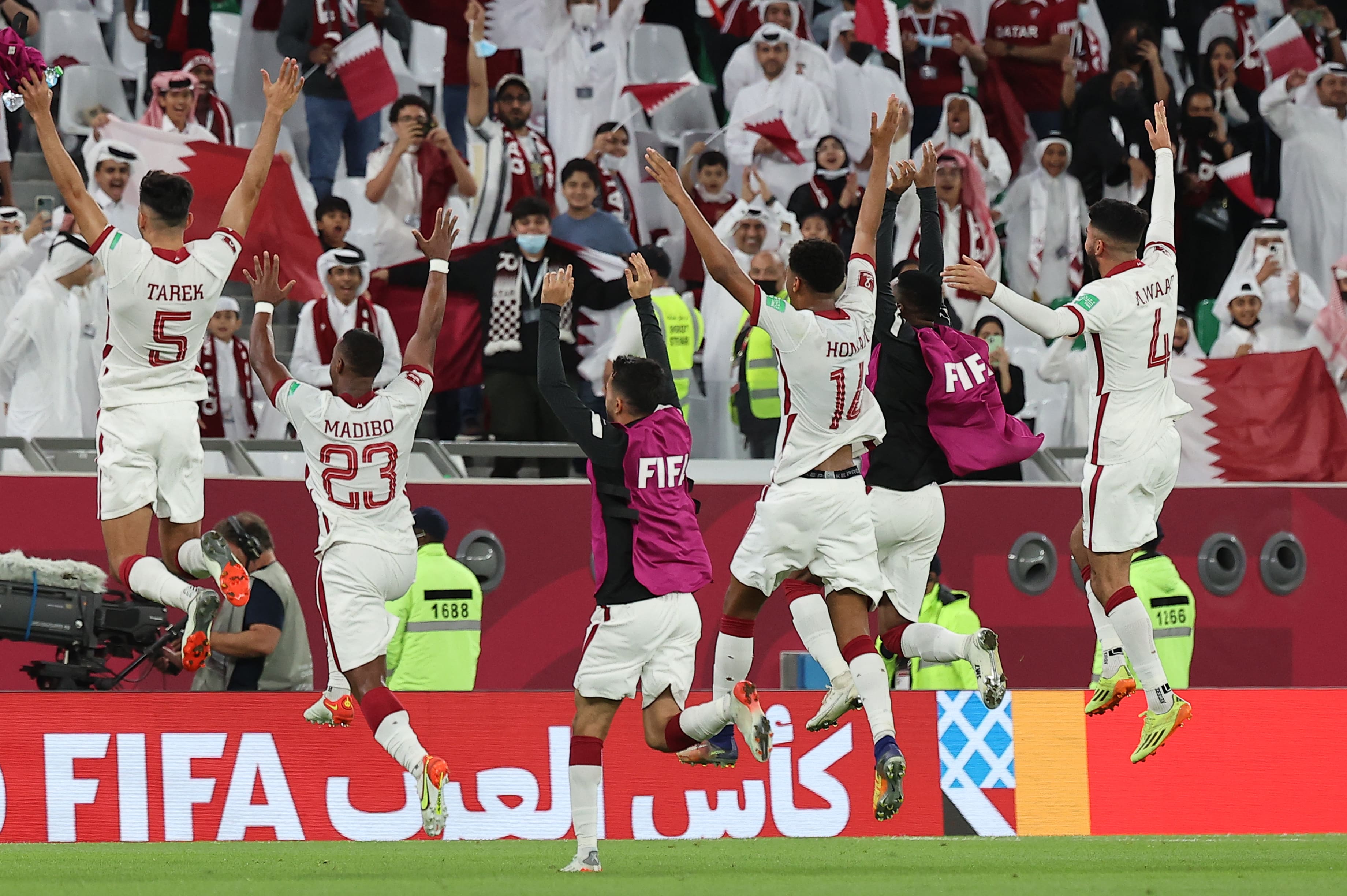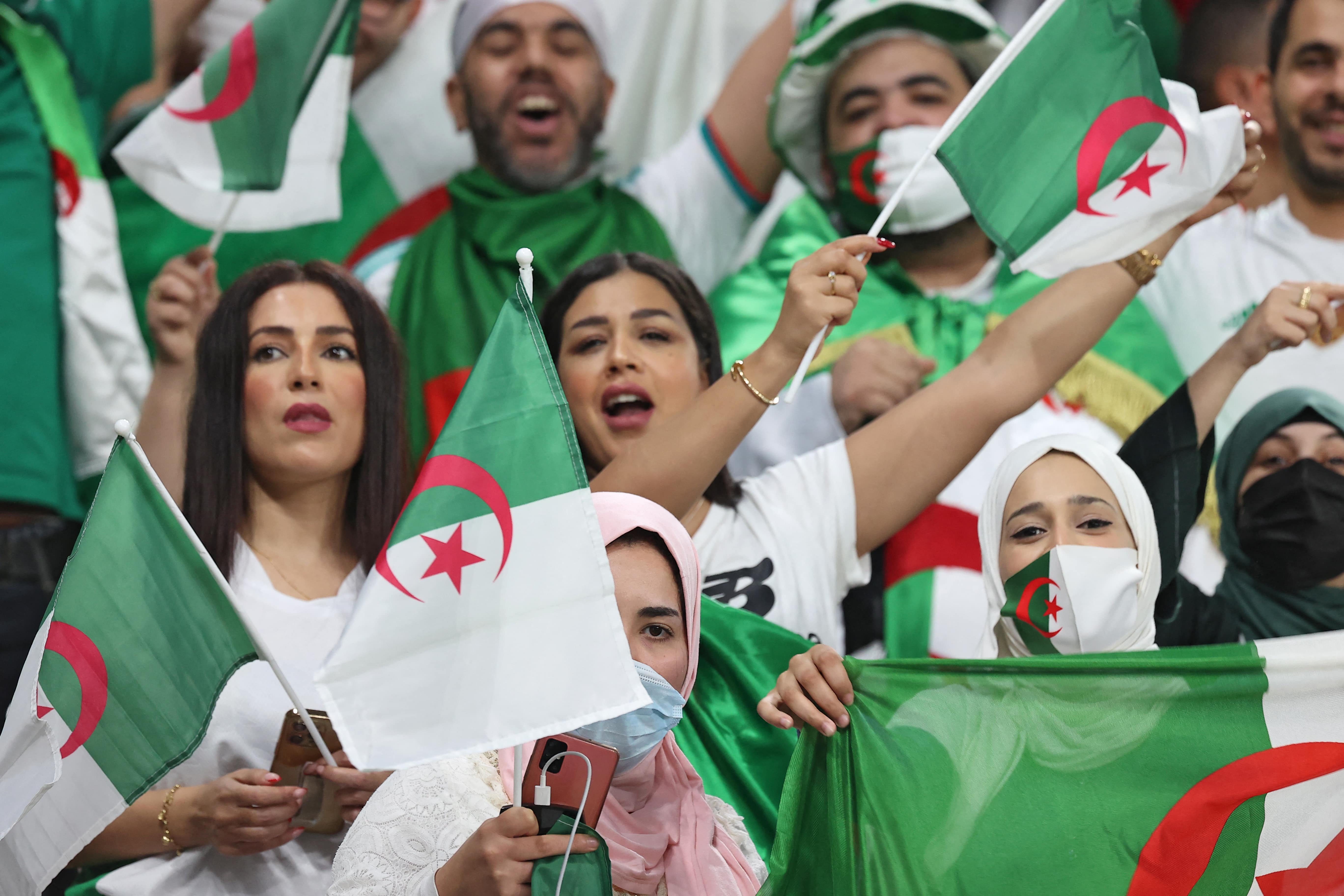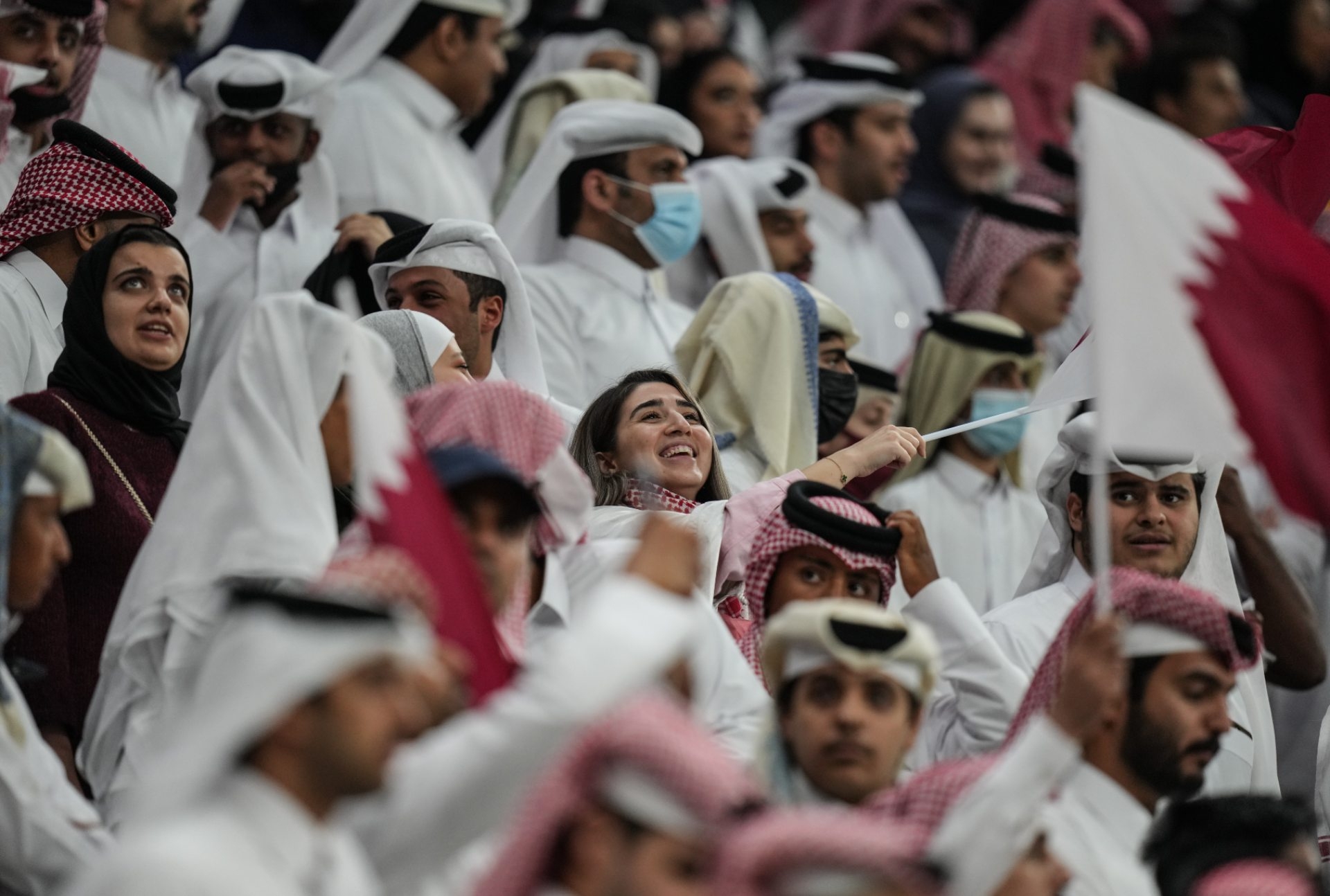
Is Qatar ready to host the World Cup?
As significant dates go, 18 December is up there for Qatar.
It marks the country’s national day, celebrating the unification of the small Gulf peninsula in 1878, when founder Jassim bin Mohammed al Thani brought together local tribes into a united entity for the first time.
On this public holiday, residents decorate their cars and houses with flags, while a grandiose fireworks display and parade takes place along the Corniche waterfront in Doha, the capital.
This year, the date also marks the final of the first ever Fifa Arab Cup, the football tournament which Qatar has hosted over the past three weeks in preparation for next year's World Cup, the first edition of the quadrennial competition to be held in the Middle East.
One year from now, the commemorative day will coincide with the World Cup final itself, putting Qatar centre stage in what is likely to be one of the biggest and most watched sporting events in history.
Fifa, world football's governing body, estimates that more than 3.5 billion people tuned in to the last World Cup, held in Russia in 2018, and that a global audience of 1.1 billion watched the final between France and Croatia.
But another poignant global observance takes place on 18 December: the United Nations' International Migrants Day, marking the date when the UN General Assembly in 1990 adopted a convention intended to promote and protect the rights of the planet's growing migrant workforce.
Foreign workers make up nearly 90 percent of Qatar's 2.9 million population.
With most of the stadiums and much of the infrastructure necessary to host the tournament built since it was awarded to the gas-rich emirate in 2010, there would simply be no World Cup without the toil of its migrant workers, some of which has come at a fatal cost.
A year out from the final day of the first ever World Cup in an Arab country, just how ready is Qatar?
From transportation, to migrant worker conditions, gay rights and footballing atmosphere, Middle East Eye went to Doha to find out how prepared the Gulf state is.
Smallest ever host braced for fan influx
Walking around central Doha, it often feels as though the World Cup is a lot further away.
Large swathes of the capital are under construction. Drainage is being installed, new buildings are being completed, roads and walkways are being widened. The air is full of sandy smog and it is hard to navigate the city.
Deciding exactly where to walk is tricky: do you slalom between the piles of bricks and concrete that crowd the pavement, or walk on main roads at the mercy of cars zooming agonisingly close to pedestrians?
Doha is a city developed with the car in mind. But it's hard to imagine that such a situation would be functional - or tolerated - at a World Cup, where over a million fans are expected.
“There are a lot of infrastructure projects by entities within Qatar. All these roadworks will be finished in the summer,” Fatma Al-Nuaimi, communications director for Qatar's 2022 World Cup Supreme Committee for Delivery & Legacy, told Middle East Eye.
She insists that much of the work is already complete: major expressways have been upgraded and expanded, and areas such as the Corniche promenade have been made more pedestrian friendly.
But the roadworks and closures often create congestion, leading to complete standstills. For taxi drivers trying to get passengers to and from games at the Arab Cup, the situation is frustrating.
“They want to host these tournaments, but there is no organisation,” says an Uber driver of Bangladeshi origin. “Where is the signage and communications telling us which roads to avoid, and where the best place is to drop people near stadiums?”
Organisers are banking on a wider uptake of public transport ahead of next year’s tournament, to avoid congestion in the smallest country ever to host a World Cup.
School holidays will also be brought forward, giving young people a chance to attend games and reducing the number of cars on the road.
“For Qataris, everyone is used to getting their own cars, but we have launched a public behavioural change campaign for using more public transportation,” Nuaimi says.
To help fulfil that aim, the Doha Metro was inaugurated in 2019. It is intended to be the main form of transport for fans next year. At the Arab Cup, the underground train system runs smoothly, aside from the odd inevitable long queue after games.
Qatar’s size - closer resembling an Olympic host city than a World Cup nation - brings with it challenges not only for transportation, but also accommodation.
Housing over a million football fans in a country with a population of less than three million was never going to be an easy feat.
“We don’t want to build hotels that will remain like a white elephant, and more than the capacity that the country needs,” Nuaimi says. “So we came up with innovative solutions.”
She mentions temporary floating hotels, with cruise ships in particular providing 4,000 rooms. She also highlights the idea of “glamping” in the desert to give fans a taste of the region's traditional nomadic lifestyle.
Overall, Qatar aims to make 130,000 rooms available during the tournament, of which 60,000 will be villas and apartments managed by Accor, the largest hospitality company in Europe.
With less than 30,000 hotel rooms in the country, the floating hotels, apartments and other “innovative” approaches will be crucial.
A Qatari government official, who spoke on condition of anonymity, told MEE that the small size of the state would bring benefits for the World Cup, reducing the need to take flights and making it easier for fans to attend multiple games.
The longest distance between two stadiums, from Al-Bayt in the area of Al-Khor, to Al-Janoub in Al-Wakrah, is 70km, and would take just 50 minutes by car. Seven of the eight venues are within a half hour drive of central Doha, guaranteeing that the capital will be packed with fans of every single team competing.
“Fans will be arriving at different times throughout the tournament. We don’t have any major concerns about the accommodation and transport. It's all been carefully planned, and is being tested and learned from at the Arab Cup,” the official said.
Migrant workers raise concerns
Qatar’s readiness for hosting football’s biggest tournament has centred not only on infrastructure and planning, but also on the rights and civil liberties of those within its borders.
Hosting one of the world’s most watched sporting events comes with added scrutiny, and for the Gulf nation the spotlight has focused on two issues: migrant workers and LGBTQ+ rights.
Doha's approach to both issues has dominated headlines in the decade since it was announced as World Cup host, and will continue to test authorities for the coming 12 months.
The picture for migrant workers has long been troubling.
Scores of construction workers in Qatar haven’t been paid on time, labourers have been subject to the exploitative kafala system that ties them to their employers, and the conditions within which migrants work and live have been widely condemned. There have also been reports of uninvestigated deaths linked to unsafe working environments.
International attention on these issues has prompted a response from Qatari authorities, with extensive labour reforms announced in recent years.
These have included ending the kafala system, introducing a minimum wage, preventing passport confiscation by employers and limiting outdoor working hours during summer months, when temperatures can regularly exceed 40C.
“The World Cup has woken us up,” the Qatari official says. “Ten years ago, some of the accomodation for guest workers was unacceptable. We would be the first to admit that.”
Nuaimi strikes a similar tone. “We’re using this World Cup as a catalyst,” she says. “There has been a lot of improvement for the last decade when it comes to workers’ welfare.”
But implementation of these reforms remains a problem. MEE spoke with numerous migrant workers who said that these new policies were not always followed by companies.
Two workers, one in construction and another in hospitality, said that their passports were currently being held by their employer, which is illegal under Qatar’s new rules.
One employee at a hotel said that to earn the minimum wage, he was being forced by his employer to work overtime hours for which he was not being compensated. He added that he attempted to leave his job, but his employer would not write him an adequate reference.
Qatari officials told MEE that things would not change overnight, and it would take time for companies of all sizes to fall into line. They also stressed that the government had simplified ways in which workers could raise grievances.
When told about these complaints systems, several workers told MEE that voicing concerns was easier said than done, and that they feared for their visa status when pursuing legal action.
Several migrant workers did feel that many of the reforms were beneficial, particularly the ban on working outdoors during the hottest hours in summer. Many spoke positively about the Qatari government, particularly in relation to free and accessible healthcare.
MEE was given an official tour of "Labour City" - a migrant camp which houses 70,000 workers on the outskirts of Doha. The rooms and communal areas seen by MEE appeared to be clean, well looked after and compliant with government policies.
The camp is highly securitised, with cameras fitted throughout the facility, and several guards patrolling each entrance to the complex. Camp staff attribute this to safety reasons, and sought to assure us that they have “nothing to hide”.
While MEE found no infractions at Labour City, the testimonies of several workers around the country suggest that the reality on the ground has not always reflected the announced reforms.
“The vast majority of Qatar’s migrant workers continue to suffer abuses at the hands of their employers,” Hiba Zayadin, MENA researcher at Human Rights Watch, told MEE.
“Employers continue to evade accountability for violating the country’s domestic labour laws and regulations, and the state continues to largely fail migrant workers when they do muster up the courage to seek redress for the abuses they suffer.”
She said that real improvement would only occur once the kafala system was “dismantled in its entirety” and once workers were allowed to join trade unions and speak out about the abuses they suffer.
LGBTQ+ fans welcome, but reform unlikely
On LGBTQ+ rights, Qatar’s approach appears to be less about reform and more about rhetoric.
Last month, the world’s only openly gay male top-flight footballer, Australian Josh Cavallo, said that he was scared to go to the World Cup because of Qatar’s record on gay rights.
“To know that [the World Cup] is in a country that doesn’t support gay people and puts us at risk of our own life, that does scare me and makes me re-evaluate - is my life more important than doing something really good in my career?” the Adelaide United defender said.
Same sex acts between consenting adults in private are a criminal offence in Qatar punishable by up to seven years in prison.
“Everybody is welcome regardless of their race, religion, gender, sexual orientation,” Nuaimi says, assuring that football fans and players have nothing to worry about.
Nasser Al-Khater, chief executive of the Supreme Committee, made similar assurances to CNN last month. He added that public displays of affection were generally frowned upon within Qatari culture, whether from homosexual or heterosexual couples.
“While the government has assured prospective visitors it will welcome LGBTQ+ tourists, for LGBTQ+ Qataris, openly expressing their sexuality is not an option,” says Zayadin of HRW.
“Freedom of expression and nondiscrimination based on sexual orientation and gender identity should be guaranteed for all Qataris, not just spectators and tourists flocking to Qatar for the World Cup.”
When prompted about whether the World Cup would bring about reforms for LGBTQ+ Qataris, Nuaimi is less assured.
“Everybody has different beliefs and different views when it comes to socially sensitive topics,” she says. “What we’re asking from people and all of these communities is to respect the culture and the tradition of the country itself, and to accept us as they’re asking for us to accept them.”
The issue of gay rights has been a hot topic in Qatar over the past three weeks, after former Egyptian footballer Mohamed Aboutrika took to Qatar’s beIN Sports to criticise the English Premier League’s "rainbow laces" LGBTQ+ campaign.
“It’s a dangerous ideology and it’s becoming nasty, and people are not ashamed of it anymore,” Aboutrika said. “They will tell you that homosexuality is ‘human rights'. No, it’s not human rights, it’s in fact against humanity.”
The comments were widely condemned on social media. A 55-year-old Egyptian resident of Doha told MEE that he thought the comments were ill-timed and did the World Cup host nation no favours.
“BeIN Sports are in a difficult position. The human rights organisations will criticise them for not firing Aboutrika. But Qataris will criticise them if they do fire him,” he said, noting that many locals had come to the pundit’s defence.
For many fans, and even football coaches, criticism of Qatar over its human rights record has felt unfair.
“Where was all this scrutiny when Russia hosted the last World Cup? The situation for gay people there is not good at all,” says Ahmed, a 31-year-old Qatari fan attending the opening game of the Arab Cup.
“Life is like this. You have some jealous people sometimes,” Madjid Bougherra, a former player and now coach of Algeria’s A team, tells MEE. “It’s the first time ever that an Arab country takes this competition. Maybe some people are not happy about that.”
Qatar scout footballers from across world
On the football pitch itself, things appear to be going more smoothly for Qatar.
The host nation, nicknamed the Maroons, did well at the Arab Cup, winning all their group games and hammering the United Arab Emirates 5-0 in the knockout stages. They were narrowly beaten 2-1 in the semi-finals by an under-strength Algeria team missing its Europe-based stars.
In a year’s time, there’ll be much attention on the Qatari playing squad.
The Gulf state is the only country in the modern era of the World Cup to have won hosting rights - earning automatic qualification - without having ever previously reached the tournament through the qualifiers. (Italy was awarded the second ever World Cup in 1934 having not played in the inaugural tournament in Uruguay four years earlier.)
But they will go into the tournament as Asian champions, following their success at the 2019 Asian Cup in the UAE, in which they beat Japan in the final, winning all seven of their matches.
Qatar were invited by Uefa to be a “ghost team” in the European qualifying tournament for the World Cup. They also competed at the 2019 Copa America tournament for South American nations, and the 2021 Gold Cup for North American nations.
Over the past decade, the country has invested heavily in the Aspire Academy in Doha, with the ambition of developing top-class footballing talent.
It has also embarked on a naturalisation initiative (something very rarely offered to foreign nationals in other professions) for footballers scouted from across the world. Ten of its squad members for the Arab Cup were born outside the country.
The progress is clear to see, and they’ll fancy their chances at giving bigger nations a run for their money next year.
Noisy neighbours bring the party
The small Gulf emirate is not a country with a historic footballing tradition, globally or within the region.
Many have suggested that if the World Cup was to come to the Arab world for the first time, then why not Morocco, Egypt, Tunisia or even Saudi Arabia, who have all qualified for the tournament on multiple occasions.
While Qatar’s games at the Arab Cup inevitably drew the largest crowds, the atmosphere was often subdued, with only very small pockets of fans around the stadium making their voices heard.
Big moments in games bring about momentary cheers, echoing the atmosphere of short-form cricket matches.
Meanwhile, when the likes of Algeria, Egypt and Morocco play, even with stadiums far from full, the atmosphere is electric.
Moroccan fans mimic the Viking Thunderclap made famous by the Icelandic national team, with the booming applause reverberating around Qatar’s air-conditioned Education City Stadium during a match against Jordan.
Seasoned Egyptian football fans sing the nights away, including the famous “Ya Trika” chant lauding their exiled icon Aboutrika.
'Arab countries need to show more solidarity, and maybe the Arab Cup will be that final piece of the jigsaw'
-Yacine Brahimi, Algerian footballer
Qatar may have provided the high-level facilities and stadia, but it was other Arab countries who brought the party over the past month. For the much bigger tournament next year, the hosts will hope their noisy regional neighbours return.
“The World Cup has never been referred to by us as a Qatari tournament. We’ve always referred to it as an Arab event,” the Qatari official says.
He points to the designs of the stadium as a case in point: Lusail is a bowl, signifying Arab food and hospitality; Al-Bayt is in the shape of a tent, in homage to the Bedouin lifestyle; and Al-Thumama is a gahfiya, a woven hat worn across the Middle East.
Algerian forward Yacine Brahimi hopes that the Arab Cup can foster solidarity in the region ahead of the World Cup.
“I think that sport can be used as leverage to improve situations and improve relationships,” he told MEE.
“Arab countries need to show more solidarity, and maybe the Arab Cup will be that final piece of the jigsaw. The World Cup - with the different cultures, different nationalities, different religions, different creeds - will help us improve the state of play.”
Nuaimi believes that regardless of whether Arab teams qualify for next year’s tournament (many will not, due to the limited number of spots for Asian and African teams), fans from the region will make the short journey to Qatar.
“In Brazil, you can see a high attendance from Latin America due to the geographic proximity of the tournament,” she says. “So for us we will be expecting people from the Middle East.”
It was just four years ago that some of Qatar’s regional neighbours, namely Saudi Arabia, Bahrain, the UAE and Egypt, cut off all diplomatic ties with Doha, accusing it of meddling in its internal affairs and supporting terrorism, which Qatar strenuously denied.
Trading ties and regional travel were halted and families were split apart. The blockade ended in January, and cooperation will be welcome ahead of the World Cup.
The Qatari official said that Doha did not deny entry to ordinary people from the blockading countries during the rift, and that Saudi football fans enjoyed the Fifa Club World Cup in 2019, which was also hosted in the city.
“When we initially opened the volunteering programme for Fifa events, over 250,000 people expressed interest. The most applications came from Egypt and Saudi Arabia - at a time when the website was blocked in those countries,” he said.
During the opening ceremony of the Arab Cup, the region as a whole was celebrated, with entertainment provided by stars from Egypt, Iraq and beyond, and a unifying acoustic performance combining the national anthems of all the world's Arabic-speaking nations.
It is that spirit - a sense of the wider Arab world - that Qataris hope will make their nation a worthy World Cup host in a year's time.
This article is available in French on Middle East Eye French edition.
Middle East Eye delivers independent and unrivalled coverage and analysis of the Middle East, North Africa and beyond. To learn more about republishing this content and the associated fees, please fill out this form. More about MEE can be found here.



